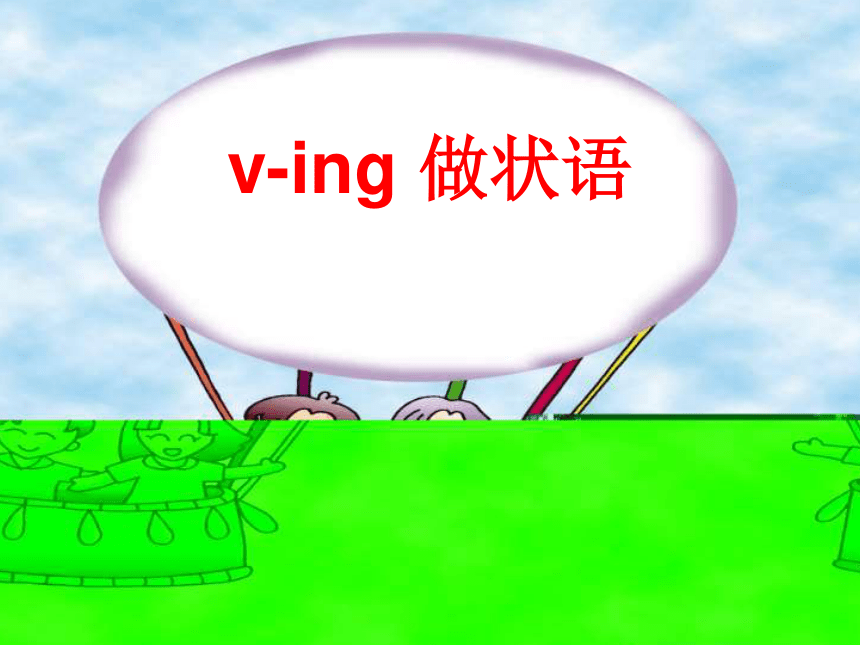(
课件网) v-ing 做状语 1. Looking carefully at the ground, I made my way to the edge of the crater. 2. Having worked hard all day, I went to bed early. Examine the sentences below and tell the similarity and difference between these two sentences. In the first sentence, the two actions are happening at the same time; whereas in the second sentence, having worked hard all day happened before went to bed. 一. 动词-ing 肯定形式 (时态及语态) 一般式 doing; being done 完成式 having done ; having been done 1._____(hear) the news , he jumped with joy. 2.The thief stood there, _____ (question) by the police. Hearing being questioned 3._____(finish) my homework, I listened to music for a while. 4._____(catch) in the traffic jam, I couldn't get there on time. 二. 动词-ing 的否定形式 1._____(know) his telephone number, I can't get in touch with him. 2._____(do) such a job before, he was puzzled. Having finished Having been caught Not knowing Not having done/ Having never done 总结;动词-ing 的否定形式 在前面直接加not. 即not doing 或 not having done. never 放中间 即having never done 总结: 动词-ing 形式做状语 v-ing 作状语时 (1)表示的动作是主语动作的一部分. (2)与谓语表示的动作或状态同时或几乎同时发生的,或是先于谓语动词发生. (3)它的逻辑主语与句子的主语一致。 (4)v-ing 作状语常表示时间、条件、原因、方式、伴随、让步、结果,多用逗号跟句子其他成分隔开。 1. 作时间状语 (1) Walking along the street, I met Mary. (=While I was walking along the street, …) (2) Hearing the news, they all jumped with joy. (= When we heard the news, we.......) (3) (When/while)discussing the matter ,they got excited. 注;如果强调分词的动作与谓语的动作同时发生,分词前加when, while. (4) _____(water) the trees, they began to water the vegetables. Having watered 2. 作原因状语 (1) _____(be) tired, I stopped to take a rest. (=Because I was tired, …) (2) _____(be) ill for a week, he was sent to hospital. (3) _____(know)her address, we couldn’t get in touch with him. (4) _____(be) abroad before, he knows nothing about the life there. Being Having been Not knowing Not having been/ Having never been 3. 作条件状语 (1)_____(turn) to the left, you will find the school. (=If you turn the left, …) (2) If you work hard, you'll succeed. =_____(work) hard, you'll succeed. 4.结果状语 (1) He was buried in the work, _____(forget) food and sleep. (2) The baby fell from the bed, _____(hurt) its head. (3)Tom hurried to the station, only_____(find) the train had left. Turning Working forgetting hurting to find 5.方式状语 (1) He stepped into the cave, _____(hold) his head high. (2) The teacher came in, with a book _____ (arm). 6. 伴随状语 (1) The girls left school,_____ (talk; laugh) (2) Tom went to bed,_____ (cold;hungry) (3) I stood there,_____ (wait) for her. holding talking and laughing under her arm cold and hungry waiting 7. 目的状语 (1) Let's go _____(shop/hunt/fish/swim) 8. 作让步状语 (1)_____(work) hard , he was still unable to support the whole ... ...

